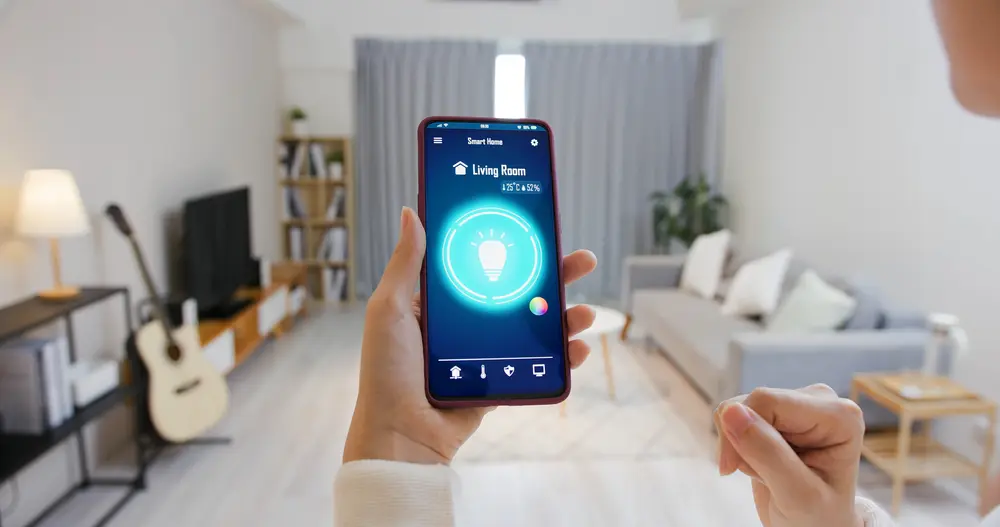
Choosing Smart Home Sensors: Your Guide to a Connected Home
Welcome to the world of smart home technology, where innovation meets convenience. If you’re considering choosing smart home sensors, you’re on the right path to creating a more efficient and secure living environment. This guide will help you navigate the sea of options available today, ensuring you make informed decisions that suit your lifestyle and home.

What are Smart Home Sensors?
Before diving into the selection process, its crucial to understand what smart home sensors are. These devices are designed to monitor and manage various aspects of your home environment. They can detect changes in motion, temperature, light, and more, providing real-time data to help automate your home. Whether its a motion sensor activating your lights when you enter a room or a temperature sensor adjusting your thermostat, these sensors play a pivotal role in home automation.
Why You Need Smart Home Sensors
Smart home sensors offer numerous benefits that enhance your daily life. They improve energy efficiency by optimizing heating and lighting patterns, increase security through motion detection, and provide convenience by automating routine tasks. For families interested in smart home tech, these sensors can also ensure that your home is always comfortable and secure.
Energy Efficiency
One of the primary advantages of incorporating smart sensors is energy savings. Sensors can automatically adjust lighting and thermostat settings based on occupancy and time of day. This ensures that energy is not wasted, leading to potential savings on utility bills.
Enhanced Security
Security is a top priority for many homeowners. Motion sensors and door/window sensors can alert you to any unusual activity, providing peace of mind whether you’re at home or away. For pet owners, there are even specialized smart solutions for pets to monitor pet activity.
Types of Smart Home Sensors
There are various types of smart home sensors available, each serving a specific purpose. Here are some of the most common:
Motion Sensors
These sensors detect movement in a specific area, triggering lights, alarms, or cameras. They are essential for home security systems.
Temperature Sensors
These devices monitor the temperature in different rooms, allowing your thermostat to adjust to the desired comfort level automatically.
Light Sensors
Light sensors measure the amount of natural light entering a room and adjust indoor lighting accordingly, enhancing energy efficiency.
Door/Window Sensors
These sensors alert you when a door or window is opened, providing an additional layer of security.
Water Leak Sensors
Water leak sensors detect moisture in areas prone to leaks, such as basements or bathrooms, preventing potential water damage.
Factors to Consider When Choosing Smart Home Sensors
When choosing smart home sensors, several factors should be considered to ensure you make the right choice for your home:
Compatibility
Ensure that the sensors you choose are compatible with your existing smart home system. Some sensors work seamlessly with platforms like Amazon Alexa, Google Assistant, or Apple HomeKit.
Connectivity
Consider the type of connectivity the sensors use, such as Wi-Fi, Zigbee, or Z-Wave. Each has its advantages and may influence your overall smart home setup.
Ease of Installation
Choose sensors that are easy to install and configure. Many modern sensors offer plug-and-play functionality, allowing you to set them up without professional assistance.
Cost
While cost is always a consideration, remember that investing in quality sensors can lead to long-term savings and improved home security.
Integrating Sensors with Smart Home Systems
Once you’ve selected the ideal smart home sensors, the next step is integrating them with your existing systems. This process can vary depending on the platform you use, but most systems offer user-friendly apps for seamless integration. For guidance on integrating with hubs, check out this article on smart appliances.
Setting Up Automation
Automation is the key to maximizing the benefits of smart sensors. For example, you can set up routines that turn off all lights when you leave the house or adjust the thermostat when you go to bed.
Monitoring and Control
Most smart home systems allow you to monitor and control your sensors remotely via a smartphone app. This feature is particularly useful for ensuring your home is safe and energy-efficient even when you’re away.
Future Trends in Smart Home Sensors
The world of smart home sensors is constantly evolving. As technology advances, we can expect to see even more sophisticated sensors that offer increased accuracy and functionality. One such development is the Matter standard, which aims to improve interoperability between different smart home devices. For more information on this emerging standard, you can read this article on Matter.
Integration with AI
Artificial intelligence (AI) is set to play a significant role in the future of smart home sensors. AI-driven sensors will be able to learn from user behavior, providing more personalized and efficient automation.
Increased Sensor Accuracy
Future sensors will likely offer enhanced accuracy, allowing for more precise monitoring and control of your home environment.
Conclusion
In conclusion, choosing smart home sensors is a crucial step in creating a connected and efficient home. By understanding the different types of sensors available, considering key factors in your selection process, and staying informed about future trends, you can make informed decisions that enhance your living space. Whether you’re interested in smart audio setups or simply improving your home’s security, smart sensors are an invaluable addition to any modern home.

FAQ
What are the benefits of using smart home sensors?
Smart home sensors offer numerous benefits, including improved energy efficiency, enhanced security, and increased convenience through automation.
How do I know if a sensor is compatible with my smart home system?
To ensure compatibility, check if the sensor supports your smart home platform, such as Amazon Alexa, Google Assistant, or Apple HomeKit.
Are smart home sensors difficult to install?
Most modern smart home sensors are designed for easy installation, often featuring plug-and-play functionality and user-friendly apps for setup.
This article contains affiliate links. We may earn a commission at no extra cost to you.